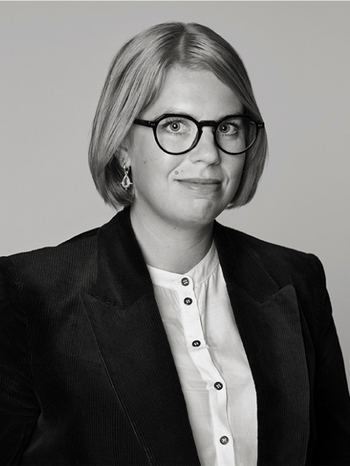Waldemar Lorentzon
"Tennisspelare" / "The tennis players"
Signed Lorentz. Executed in 1928-29. Oil on canvas 76 x 50 cm.
Alkuperä - Provenienssi
The collections of the artist Esaias Thorén, Halmstad, Sweden.
The collections of Fredrik Roos.
Bukowski Auktioner AB, Stockholm, Sale 451, "Moderna", May 12-15, 1987, lot 22.
Private collection.
Näyttelyt
Halmstadsutställningen, June 20 - August 5, 1929, no. 10.
Göteborgs konstförening, "Halmstadgruppen February 1930", cat no. 38.
Liljevalchs Konsthall (Liljevalchs Public Art Gallery), Stockholm, ”Halmstadgruppen 60 år. Halmstad – Berlin – Paris – Halmstad”, April 7 – June 4, 1989, no. 70.
(Probably) Mjällby Konstgård, Halmstad, Sweden, ”Halmstadgruppen 60 år. Halmstad – Berlin – Paris – Halmstad”, July 16 – September 17, 1989.
Amos Rex, Helsinki, "Föreningen Nutidskonst 50-årsjubileum", October 6 - November 26, 1989, no. 24.
Mjellby konstmuseum, Halmstad, Sweden, "I Légers ateljé", July 10 - October 2, 1994, no. 95.
Kirjallisuus
(Ed.) Louise Robbert, "Halmstadgruppen 60 år. Halmstad - Berlin - Paris - Halmstad", 1989, illustrated in colour p. 146.
Viveka Bosson, "Halmstadgruppen. A force in 20th century Swedish art", 2009, illustrated in colour p. 34.
Muut tiedot
In February 1924, Waldemar Lorentzon and his cousin Erik Olson arrived in Paris. The vivid art cosmopolis made a great impression on them both. They rented a studio in rue Notre-Dame-des-Champs 86, where other Swedish artists like Arvid Källström, Isaac Grünewald and Gösta Nystroem also lived. They made acquaintance with Fernand Léger, who had his studio across the same courtyard, and it was of great importance for both Lorentzon and Olson. They attended classes at Legér’s Academie Moderne, where the master’s post cubist style greatly impacted their artistic development.
Fernand Léger inspired his students to recognize the ductile forms in things surrounding them like road signs and the factory chimneys’ tube shapes. The students were taught how to create an image with separated architectural forms in bright, unmixed colours.
Towards the end of the 1920s, the Halmstad group’s artists executed several paintings with athletic figures in motion built up of rhythmic zigzag lines. In the auction’s work “Tennisspelare” made in 1928-29, Lorentzon puts Fernand Léger’s lessons into practice. The tennis players’ bodies have ductile, turbine-like shapes that almost look like a machine made them. The colour fields redefined with precise contours and contrast each other. The net’s dramatic angle creates depth in the image.
The rare works from the other half of the 1920s define a peak in Lorentzon’s artistic oeuvre before he and the other Halmstad Group members move on to surrealism in the 1930s.






























































